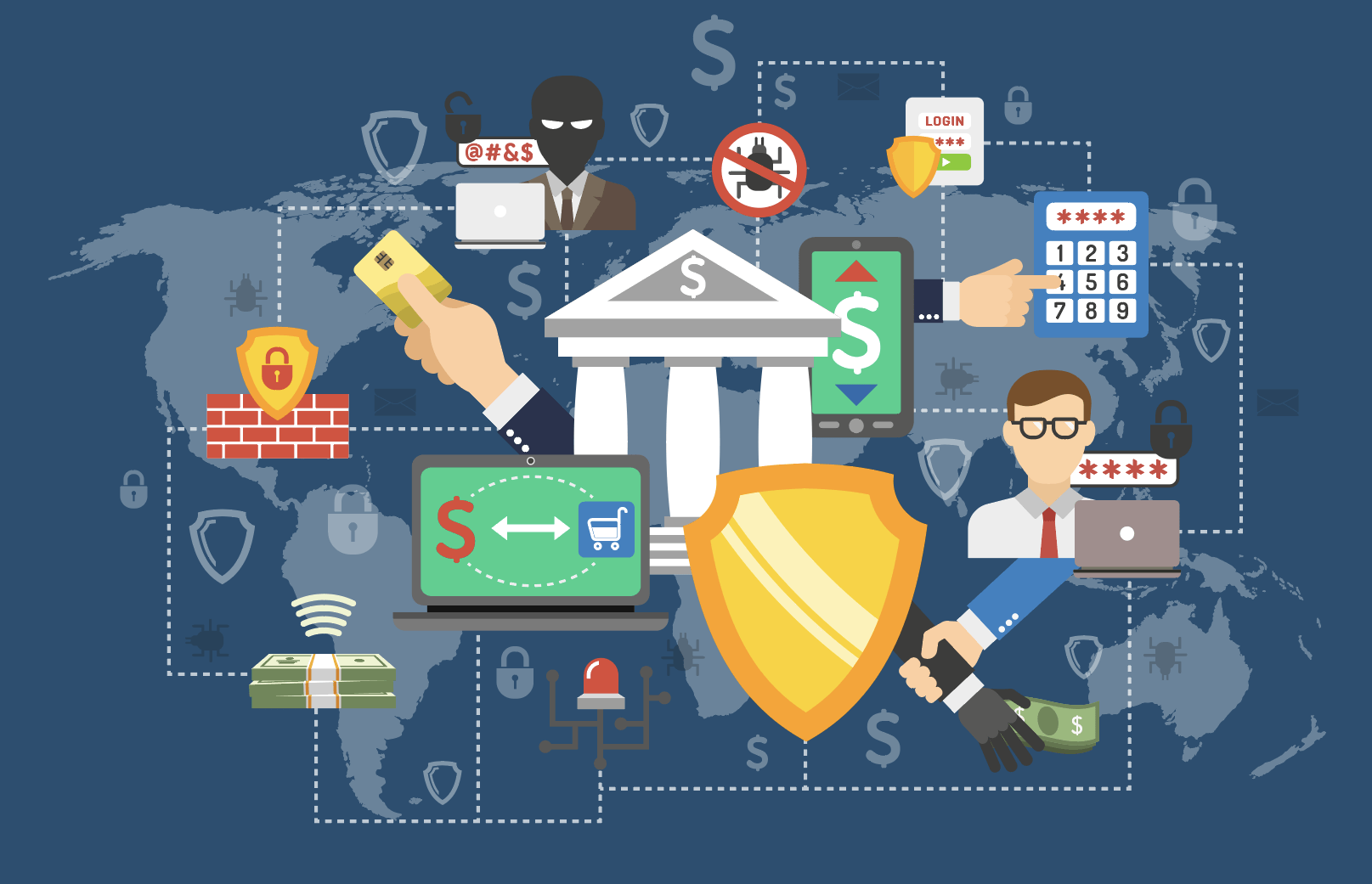Financial
Financial
Protect your financial services.
Why the Financial Industry Needs Information Security
The banking industry must protect private information to secure customer assets.
The main reason the banking industry needs to protect private information is to secure customer assets. More and more people are moving toward a cashless society where the majority of their transactions are done through digital checkout pages and in-store credit scanners. Most people know how much money they have entirely through apps on their phones instead of how much cash is in their wallets. As society becomes cashless, it becomes even more critical that the banking industry keep personal information safe from cyberattacks.
When a customer is subject to a cyberattack, they typically need to cancel their credit and debit cards and start new accounts, sometimes at new banks. Customer funds are protected by the Federal Deposit Insurance Corporation (FDIC), but cybercriminals are still on the prowl for more information to steal for financial gain.
Thankfully, the banking industry can protect itself through adequate cybersecurity tools. Deploying techniques like firewalls, anti-virus and anti-malware software, multi-factor authentication, biometrics, and thorough customer education, can prevent destructive cyberattacks on your banking institution.
What happens when you're unprotected?
Banking is one of the most at-risk industries for cyberattacks.
Selling the personal information that criminals steal is a very lucrative enterprise on the dark web. Banks hold everything from names, dates of birth, and gender, to social security numbers, bank account numbers, and PINs. Everything a cybercriminal needs to steal your money is inside your bank's network system.
Potential Attacks
Potential attacks on banks include malware, ransomware, distributed denial of service (DDoS) attacks, Automated Teller Machine (ATM) cash-out, and more. Criminals are continually looking for new and more creative ways of stealing information and money from banks, and they either sell that information on the dark web, or they use the data themselves to extract money from customers’ accounts.
Security Is Important
The banking industry must protect itself against cyberattacks. Without cybersecurity, too much information is at risk.
Compliance with Laws and Regulations
Compliance with Laws and Regulations
The Gramm-Leach-Bliley Act requires banks and other financial institutions to explain all their information-sharing practices to customers. The act also requires that the institutions safeguard sensitive data. This includes safeguarding information from cyberattacks.
When banks violate the Gramm-Leach-Bliley Act, whether willfully or by accident, they are found at fault and faced with imprisonment for up to 5-years, hefty fines, or both. An institution can be fined up to $100,000 per violation.
There is also the Safeguards Rule, a part of the Gramm-Leach-Bliley Act, which requires financial institutions to enact measures to keep customer information private and secure.
If a bank does not follow the act or the Safeguards Rule, they put themselves at risk for losing customers and the valuable business they need to operate.
Interested in our services? We’re here to help!
Interested in our services? We’re here to help!
We want to know your needs exactly so that we can provide the perfect solution. Let's start the conversation!

